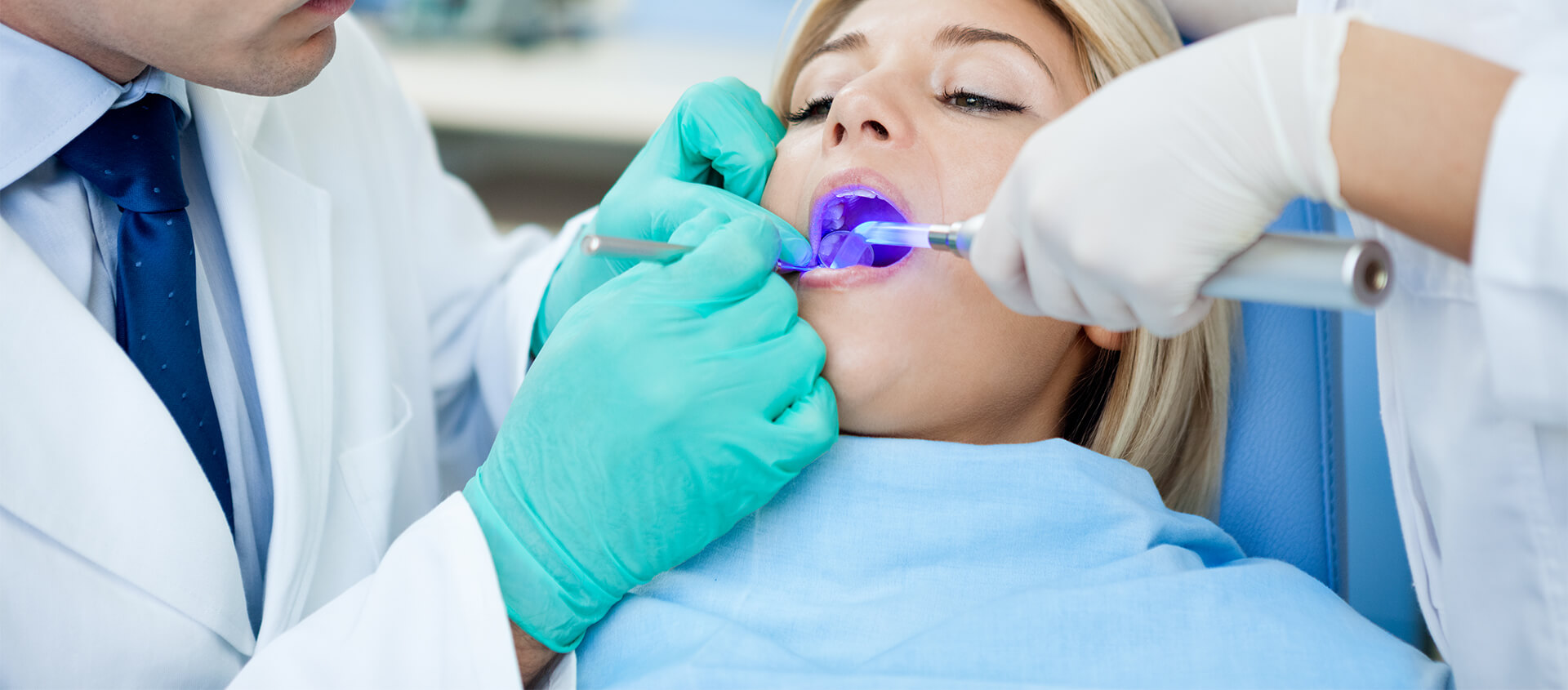Do you notice some “pink in the sink” when you brush? Are your gums puffy, red, or irritated? If so, you may have gum disease (also called periodontal disease). At Titus Dentistry, we are committed to the oral health of our patients in the Middletown, Anderson, Pendleton, Muncie, and surrounding IN communities and offer a comprehensive array of periodontal therapy options to treat gum disease.
Why treat gum disease?
While gum disease is incredibly common and may not seem like something that needs to be addressed, it is an insidious disease and can lead to major oral health problems, such as tooth loss, bone deterioration, and gum recession. In addition, periodontal disease has been linked to serious health conditions such as heart attacks, strokes, and other systemic problems. While the risk of gum disease increases as you age and in patients with certain risk factors, it can occur in anyone at any age. Once gum disease develops, it is essential to treat it as soon as possible to prevent it from progressing into a more serious version of the disease that is difficult to reverse.
Gum disease treatment options
Like most diseases, there are multiple stages of gum disease and the treatment plan that is appropriate for each patient depends on their specific health needs.
- Patients with gingivitis, the early stage of gum disease, may only need to change their daily oral hygiene habits and come into the dental office for more regular deep cleanings.
- Scaling and root planing may be recommended as a starting point to control more advanced gum disease. Using specialized instruments, we remove the plaque and tartar that have built up beneath the gum line.
- Laser gum treatment can be used to treat areas that have decayed, eliminate bacterial growth, and remove diseased gum tissues with less discomfort than more traditional methods. It also helps stimulate growth of healthy new tissue to help replace diseased tissues that may have been lost.
- Antibiotic therapy (either topical or oral) may be recommended to help eradicate the bacteria that are contributing to the disease.
- Gum grafting is a procedure that is performed to replace gum tissue that has been lost to the disease. In this procedure, healthy tissue is taken from another area of your mouth and placed into the area where tissue has been lost.
If you think you may have gum disease, don’t delay in calling us to schedule an evaluation. With early periodontal treatment, you can halt the disease in its tracks for a healthy smile. Our Middletown, IN office can be reached at (765) 358-5868.

















